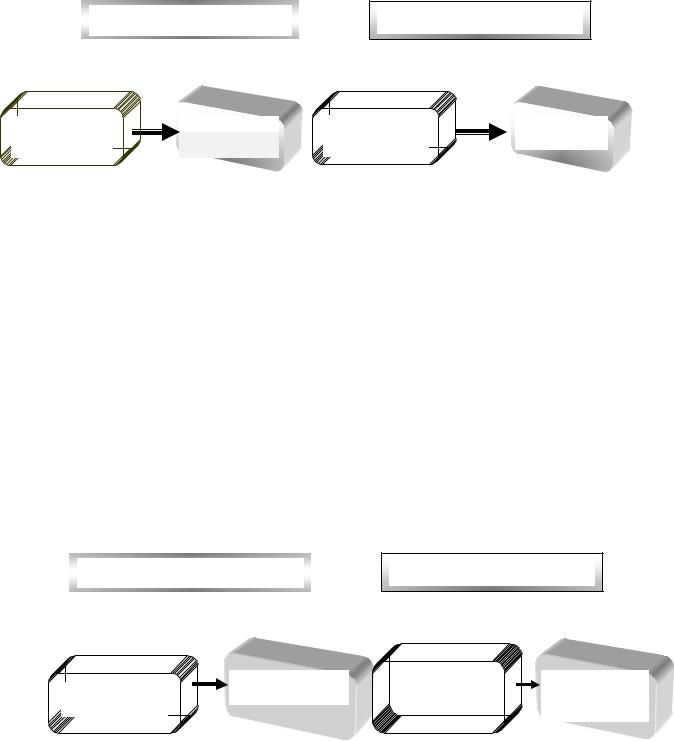
Английскй учебник
.pdf


10. % ! #
.
1.If I (to be) a judge, I would try cases objectively.
2.If I (to be) a juror, I would listen to the evidence very attentively.
3.If he (to commit) a crime, he should plead guilty.
4.If the defendant (to plead) guilty to the charges against him, the judge would sentence him to the appropriate punishment.
,1%1)07, 1 4 0 (+1
|
|
8 |
|
|
|
|
|
Past Perfect |
& & - |
should + Perfect |
& & |
(had + V3 ) |
«!» |
would Infinitive |
«!» |
11. # ,
, ! * , ! ...
1.If Mrs. Carroll hadn’t been well-dressed, the detective ….
2.If there had been many people in the shop, ….
3.If she had not chosen one of the most expensive dresses in the shop, ….
4.If the shop assistant had not wrapped it as quickly as possible, ….
5.If Mrs. Carroll had given a few small articles altogether with an expensive dress, ….
6.If the detective had not found out their relative ties, ….
UNIT 2. THE FIRST STAGES OF A CRIMINAL TRIAL
1. , & '. '-
' .
1) to arraign |
6) to commit |
2) to accuse |
7) to punish |
3) to defend |
8) to object |
4) to indict |
9) to prosecute |
213





15. % ! - . ! . -
(F. R.) (/ '
) !, – '. + ,
.
Your Honour |
– ) $ ( $ - |
|
|
) |
|
Objection |
– &, |
|
That’s a leading question |
– + " |
|
Objection, Your Honour, council is leading |
– - , ) |
$, $ |
the witness |
( ) " |
|
That’s hearsay |
– ' & ( $ |
|
|
|
") |
That’s relevance |
– |
|
Objection, Your Honour, this question is ir- |
– - , ) $, % |
|
relevant to the case |
|
|
F and R were both convicted of conspiracy to import and supply heroin from Pakistan. The case was that an informer, Jamil, with the approval of Customs officers arranged with R to import heroin, which was replaced by harmless powder once it arrived in England. Both F and R met Jamil at a railway café in Birmingham and discussed the procedure of obtaining samples of “heroin” for resale. When F picked up a bag containing the replaced powder he and R were arrested. They made untruthful accounts not realizing that their movements had been monitored and later when R was told he had been under surveillance he made admissions. In his defence F said that he thought that there was a medical drug in the bag, and blamed R. R said that he was on legitimate business and knew nothing of any drug and was supervising the delivery of lawful goods. He made admissions because that was what the Customs officer wanted to hear and he wanted to be freed as soon as possible.
UNIT 3. DEFENCE EVIDENCE, CLOSING SPEECHES AND JUDGE’S SUMMING-UP
1. ! # # .
directly –
personally – usually – carefully –
separately –
2.#. .
1.He’s lived in both Britain and America.
2.She can both speak and write Japanese.
3.She’s the kind of person you either love or hate.
4.The equipment is neither accurate nor safe.
219

